The trajectory of Raz Olsher's career reads like a musical atlas of contemporary London's diversity of sounds. From his Hackney-based Fossil Studios, the prolific producer, composer, and remixer has spent over a decade tip-toeing through genres, working with everyone from Gilles Peterson and MJ Cole to Nathaniel Rateliff and Mercury Prize nominee Sam Lee. His 2012 chart-topper "Bom Bom" by Sam and the Womp sold over two million copies worldwide, while his remix work for The Cure, Sun Ra, and Glass Animals has established him as one of the UK's most sought-after sonic alchemists. Yet perhaps most tellingly, Olsher has consistently operated outside the mainstream's gravitational pull, leading live electronic collectives like Bassically and Zej and releasing underground dance music as one half of the duo Raz and Afla.
Now, with his latest solo venture, Craters of the Lost Souls, Olsher once again ventures into entirely new terrain. This psychedelic spaghetti Western soundtrack to an imagined film is an inspired creative departure and a sort of spiritual homecoming. Born from pandemic isolation on a Thai isle and a subsequent reunion with his beloved studio instruments, the album channels the cinematic grandeur of Ennio Morricone through Olsher's distinctly modern lens. The result is a haunting retro-futuristic score that follows Buck Harlan, a tormented gunslinger navigating Wyoming's mystical badlands in search of redemption among ancient spirits and cursed craters.
After contending with laptop-based composition during his island exile, Olsher’s return to recording at Fossil Studios was especially ignited by a borrowed Gretsch guitar that unlocked the album's distinctly Western tonality. Working with a carefully curated ensemble including drummer Filippo Galli, wind instrument champion Clive Bell, and the remarkable Sylvia Hallett on jaw harp and hurdy-gurdy, Olsher constructed a narrative that bristles with epic scope. The limited edition vinyl release, restricted to just fifty copies, underscores the project's boutique ambitions.
Our conversation was recorded in the midst of Raz Olsher’s transformative experience walking Spain's Camino de Santiago. Olsher enthusiastically discussed the influence of Morricone's compositional techniques on his creative process and how the constraints of pandemic-era music-making ultimately liberated his artistic vision. We also chatted about his unique approach to album sequencing, the role of Rick Rubin's philosophy in his daily practice, and his plans to bring this cinematic Western to life through live performance.
Michael Donaldson: Wow, Camino del Santiago, man. Is this your first time?
Raz Olsher: It is my first time.
Michael: God, I'm so fascinated. I want to do it.
Raz: Is it calling you?
Michael: It's been calling me for a while.
Raz: Likewise, it's quite an experience. I'm two days in, and I'm absolutely wrecked. I'm doing the Primitivo, which is the most ancient route, from Oviedo to Santiago. I went to do the most difficult one without any preparation, as you do. It's been raining nonstop. So, thirty kilometers a day in mud and rain, uphill, downhill—quite a spiritual journey. It's beautiful.
Michael: I can imagine your album, Craters of the Lost Souls, being a soundtrack to this walk.
Raz: I was thinking the same. I did bring my headphones, but I'm not listening to anything while I'm walking. I prefer the solitary aspect. But the album is kind of a journey into the soul and landscape. So indeed, it can be a soundtrack for the Camino.
Michael: The album has a set storyline, and it's the soundtrack to this imagined narrative. Were the songs recorded or written with this predetermined narrative? Which came first, basically?
Raz: The music came first.
Michael: It's more fun that way, I think. I enjoy imagining a story to music, or even sequencing music around a story.
Raz: Absolutely. Sergio Leone had Ennio Morricone record some of the themes before shooting, and then played those themes on set. It's a common practice in the spaghetti western genre, as well as in many others. Many directors find music to be an inspiring source. I love this kind of music, and it came to me through a friend who left a Gretsch guitar in my studio. I found these patches on some Roland synths that I was enjoying and experimenting with. And all of a sudden, this kind of sound presented itself to me, and I thought, "Hey, that's quite cinematic and could be a film soundtrack. So, okay, what are we missing?" And then it all unfolded.
Michael: I love that you brought up how Leone would play the music on set. He did that during that incredible long crane shot at the beginning of Once Upon a Time in the West. They were blasting the music as they were filming, and just the idea of being there when that was happening—just incredible.
Raz: Incredible. It makes a lot of sense, doesn't it?
Michael: I bet you can’t avoid some of the songs from this album popping into your head during your walk. When did you discover the music of Morricone?
Raz: I was very young. My father was a huge fan of these films. All the trilogy, obviously—The Good, the Bad and the Ugly, For a Few Dollars More. And so I had exposure to that music, and it resonated with me strongly.
Michael: So when you saw the movies with your father, was the music sticking out right away?
Raz: Absolutely. It's so memorable. The aesthetics are so unique, and the themes are so poignant. I mean, I'm not the only one, am I?
Michael: Oh, certainly not.
Raz: It's universal music.
Michael: Obviously, the famous "Good, Bad, and Ugly" whistle—that's all you have to say, and everyone can recite it. I mean, everyone. I bet you could go deep in the jungle in Peru and say that, and someone probably could do it.
Raz: That's amazing, isn't it? I remember a few others. There is Once Upon a Time in the West, where I first heard that famous harmonica line on an Orb track.
Michael: Oh yeah, of course. They use that in "Little Fluffy Clouds."
Raz: That's right. That was the first time I heard it, actually on the Orb track, and then I later found out it was a Morricone tune.
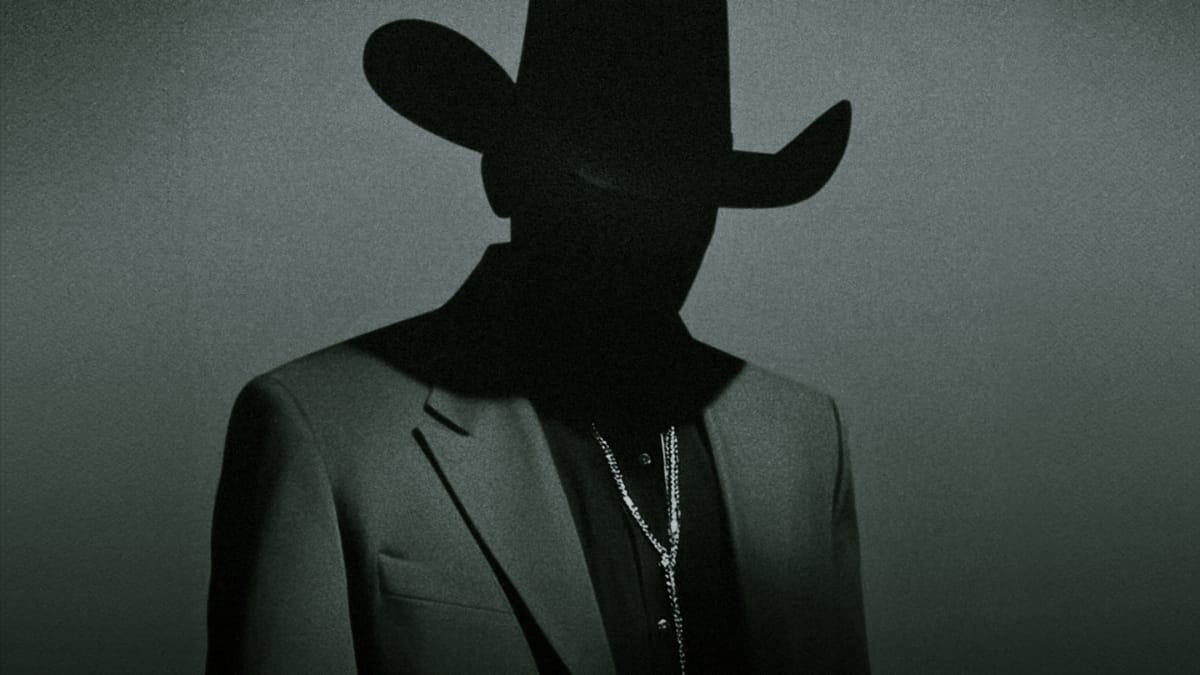
Michael: Do you follow Morricone’s music outside of the Western genre?
Raz: Oh yeah. Cinema Paradiso—one of my favorite works of his, absolutely incredible. And it's a classic, amazing film.
Michael: There's an Italian crime drama, Investigation of a Citizen Above Suspicion. It’s from 1970 and features a Morricone score that’s so twisted it shouldn’t work, which, if you ever see it, you'll know what I mean. But it does, and the stand-out instrument in this score is the jaw harp.
Raz: Classic. I saw him live—full orchestra, full choir. It was promoted as his last tour. That was in London at the O2 Arena in 2018. I had tenth row tickets for that.
Michael: What was that like?
Raz: It was beautiful. He was conducting. It was great. The harmonica was played back by sample, which I was somewhat disappointed by. I mean, you can't find someone to play the harmonica for that live?
Michael: If only they had known you were there.
Raz: I should have jumped on. But, you know, it was just nice to see the man and pay tribute to him musically. It wasn't the best concert I've ever seen, but it was a beautiful event.
Michael: I felt the same when I finally saw Brian Wilson.
Raz: I remember seeing him as well, playing Pet Sounds.
Michael: Right. It wasn't the greatest concert, but it was amazing to see him. That brings me to something—a lot of the album strikes me as homages, maybe to things that were inspirational to you. Different songs would bring other things to mind for me, and not in a way that was copying, but in vibe. And the one that really stands out, because we just mentioned Brian Wilson and Pet Sounds, is "Pacific Dreaming.” It sounds like an homage to the title song on Pet Sounds.
Raz: Very good choice. It is a beautiful tune. And I wrote it as part of this batch of songs. Actually, I have released a demo of this song, called “Pacific Dreams,” in a compilation titled The Latin Sounds of Now by Coco Maria. So it's a shorter snippet. And then, for this album, I recorded drums, bass, accordion, and flute, and made it, you know, the director's cut. But it's a beautiful theme. It's really magical. I like it too.
Michael: It doesn’t have a similar guitar line to “Pet Sounds," but a similar guitar sound. And the rhythm is reminiscent as well. Was it a sly homage to the song “Pet Sounds” directly, or am I reading things into it?
Raz: It wasn’t, but I get where you're coming from. That’s a huge compliment.
Michael: When did the idea for creating a story for Craters of the Lost Souls come into it? Did the sequence mutate once you had a story?
Raz: So it was kind of during the writing. I sometimes do an exercise where I write a theme a day, first thing in the morning, and these themes start coming out. I thought, "This can be like a soundtrack." So I started thinking about the story and considered, "Okay, what do I have? What am I missing?" But you know, I love the medium of an album so much, and when I start writing something and have a little concept, I often write them in the order they appear on the album. So each piece that I do reflects and affects what I'm going to do afterwards. It's kind of a sonic continuation for me to express whatever else I want to express.
Michael: It's like a diary.
Raz: It is. I have an album from 2020 called Audio Diaries. I went to play at a festival in Thailand in March 2020, the moment the world shut down. I decided, "Okay, if we're all going to die, and this is the end of the world, I’m going to stay on this beautiful beach." I bought a couple of speakers in a grocery shop, and I did this exercise of writing a track a day for April 2020, sharing it online every day. So it's exactly like a diary. And later on, I released an album of twelve or fourteen tracks from that. It’s all on my SoundCloud page, where you can see the story and how I try to touch on everything I like and feel, which is a lot. I'm a bit greedy.
Michael: Do you still do that exercise?
Raz: Occasionally. I mean, my process changes a lot. I'm currently working on quite a few albums at the same time, most of which are collaborations. One of them is a concept cello album, where I'm collaborating with different female cellists for each track and then doing a little interview with them. I tend to work fairly quickly, capturing the initial ideas and then finalizing them.
Michael: I would imagine your studio setup is designed to facilitate this for you, allowing you to work quickly and get things done efficiently. How did you adjust to not having that on the island?
Raz: Well, on the island, I didn't have anything. I had a pair of speakers and my laptop. I didn't have any instruments. I managed to order a MIDI keyboard online, but initially, I was just playing on the laptop keyboard and writing in Logic. I didn’t have any hard drives or other equipment. I was sampling a lot from YouTube, just using what I had. I used a lot of spoken word samples. I needed to find things to inspire me. One day, Bill Withers died, so I did a "Grandma's Hands" remix. Each day, I found something that I could write about or make a tune about.
Michael: What do you feel you learned from that experience? That’s quite a change from working in your studio, where you have access to a plethora of instruments and a mixing desk.
Raz: Yes, I do have lots of toys and synths, and everything's hardwired. The workflow is very efficient and very quick. But what I learned from that island exercise is that I was committed to doing a track, publishing it, and sharing it with the world every day. It’s not about overthinking; it’s about trusting your instinct, and if something works, going with it quickly. And of course, you can always question yourself. You can always try other things, and many alternatives may work, but it was just to do something extremely intuitive and trust it, and then go with it.
Michael: Did you find yourself working differently in your studio after this experience?
Raz: Absolutely. I mean, this album was created after I returned to my studio. So I reunited with all my instruments. So, rather than sitting on the computer, I took the keyboard and played a theme, and I took the guitar and played something because I missed it. I missed using my instruments. A common theme in my work is that the next album is kind of 180 degrees from the one prior to it, which is something that I love about artists—to switch it up and do something completely different.
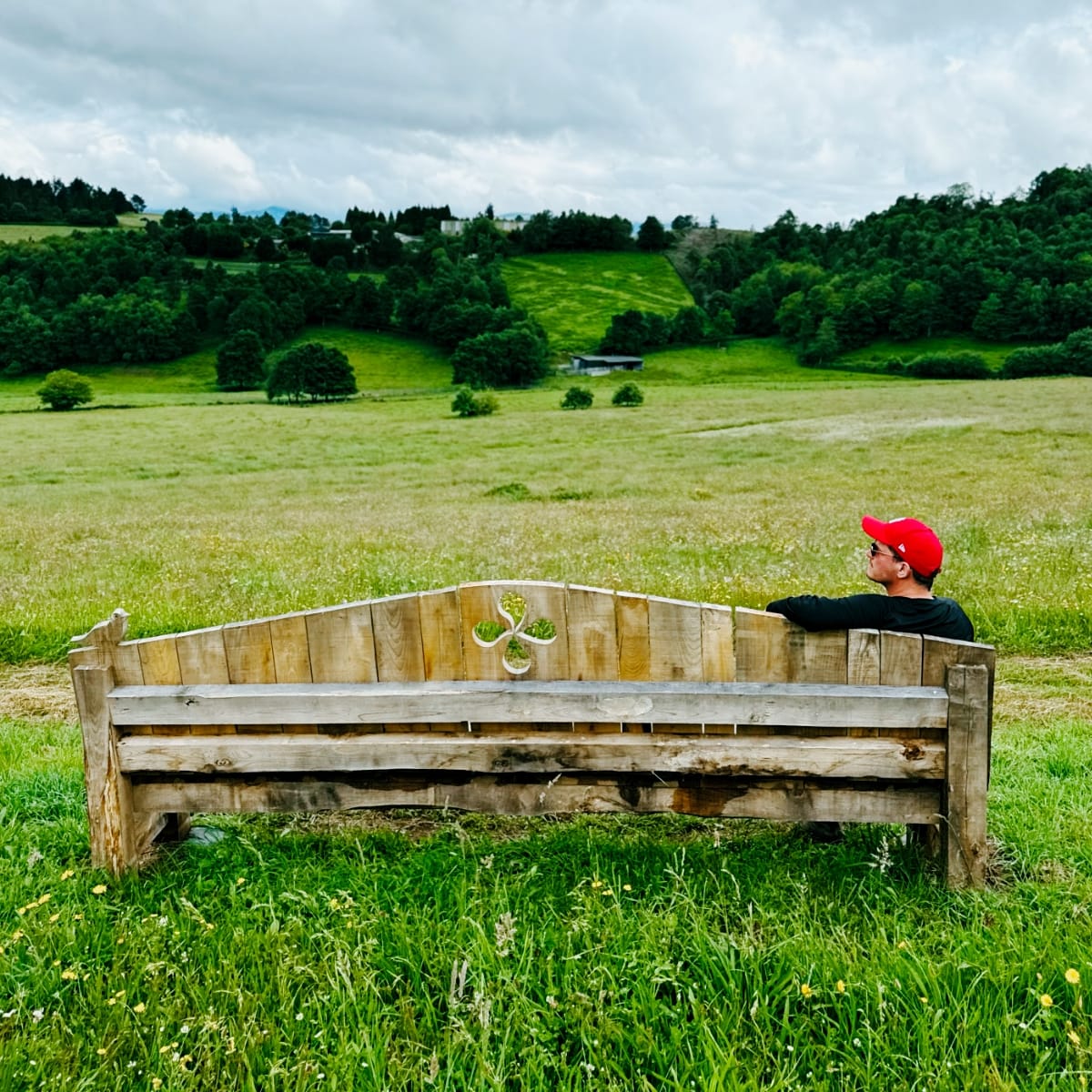
Michael: You mentioned that you picked up a guitar, which reminded you of Morricone, and that was the seed of Craters of the Lost Souls. So, would you say you had done anything before that was Morricone or spaghetti Western-inspired, or is this your first foray into that genre?
Raz: I mean, I have some of those influences in my music, not as literal as it comes out in this work. And the guitar that I had, from my good friend Adam Warrington—he left a beautiful Gretsch guitar that has kind of a western sound. A certain instrument just gets certain music out of you. Those themes just came out of it, and it fit. So you see, that's another thing I enjoy about this kind of writing session and exercises—to have a bit of rules. For example, I can do themes on a guitar, and I can use no percussion on this, and the bass sound will be only from this guitar, and this synth will give me this kind of patch. That helps me to have a more coherent continuity across multiple tracks.
Michael: Do you change up the rules for the songs, or do you have a general constraint you like to use on a project?
Raz: I do it per project.
Michael: Do you do anything that is especially like Brian Eno-ish creative role-playing?
Raz: Oblique Strategies-like? Do you know that Rick Rubin posts these quotes on Instagram? He would occasionally post a quote on his profile and then delete it. I had my assistant cut them all out, and I printed them on cards, similar to the Oblique Strategies, to create my own custom Rick Rubin Oblique Strategies cards. So I do have that.
Michael: How do you use that?
Raz: I used to use it first thing in the morning. I took one card with a quote and placed it in front of me, letting it inspire me for the day. Or when you're stuck or need a little bit of inspiration, you just take a card out, and it's Rick Rubin rather than Brian Eno.
Michael: I once did a music project, similar to what you’re talking about with the daily thing, where I kept it going for about twenty or thirty days. My prompt was something completely random every day. I also had an egg timer, so I had to be done in an hour.
Raz: Beautiful. I mean, it's so easy to fall into playing it safe, into the things you know and that work for you all the time. And if you manage to randomize it and mix it up a bit, then new things come out.
Michael: I think I saw that you're planning on performing Craters of the Lost Souls live. What would that look like? I imagine you'd want to do something more than just play the songs.
Raz: Oh, absolutely. I would just get a bunch of the top cats in London, many of whom played on the album, and I would open it up. I’d let them be free, you know, have some of the themes, some of them with the groove, but let the music really be live. If you choose the right musicians, they’ll bring their personality to the music, and it'll unfold. It’s like a chef selecting ingredients for a dish.
Michael: It would also be interesting with a script of the ‘movie’ in hand, for the players to reference. "This is what you're soundtracking," or even further, "This is who you are in the movie."
Raz: Dress them up, and maybe even collaborate with a visual artist to create some visuals—not necessarily literal stuff, but atmospheric visuals that go in line with the film and the music.
Michael: Have some tumbleweeds blowing across the stage. Well, thank you for the glimpse of Spain behind you. I love it. I hope to do that walk myself.
Raz: I highly recommend it.
Check out more like this:
 The TonearmMichael Donaldson
The TonearmMichael Donaldson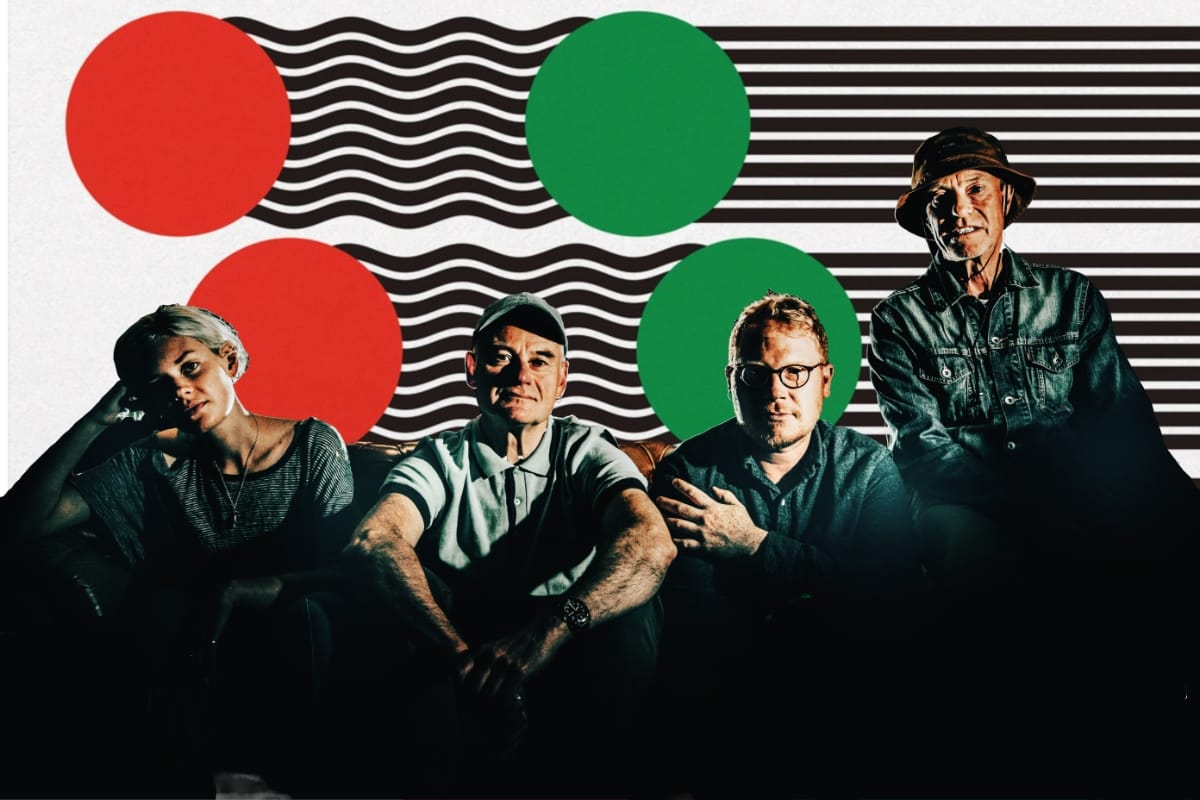
 The TonearmLawrence Peryer
The TonearmLawrence Peryer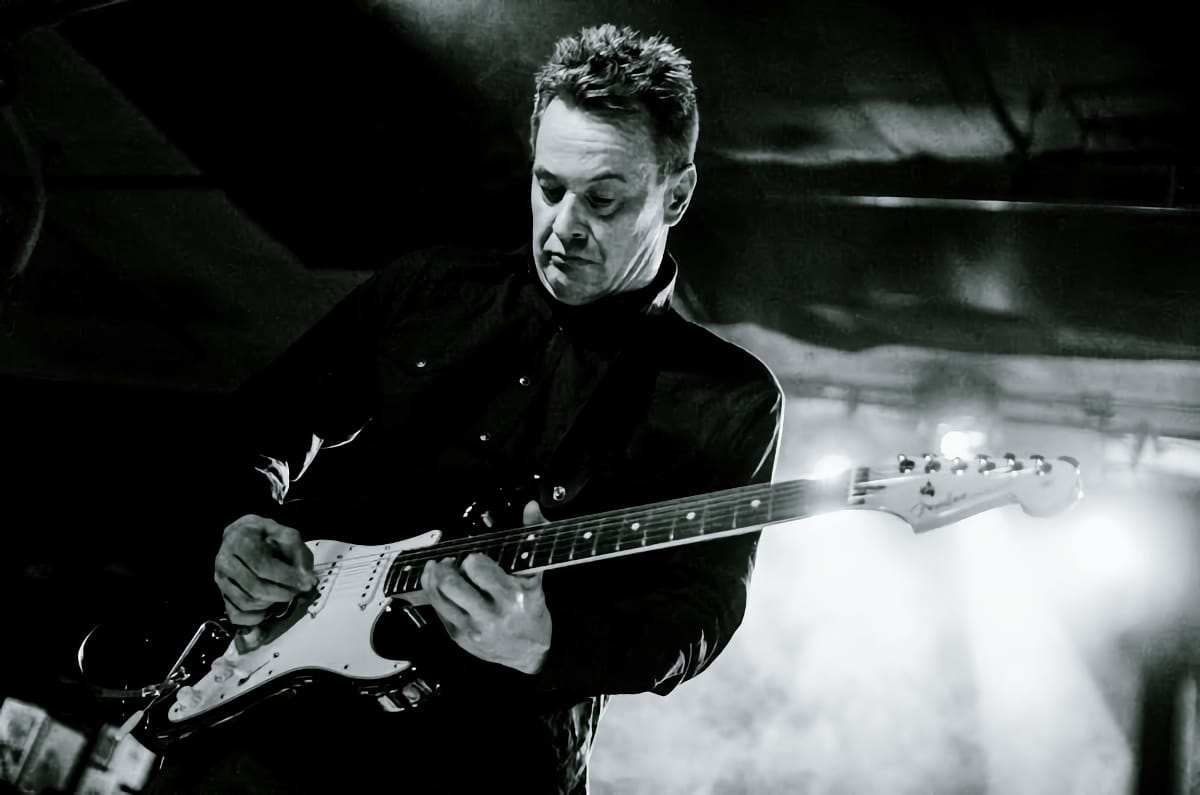


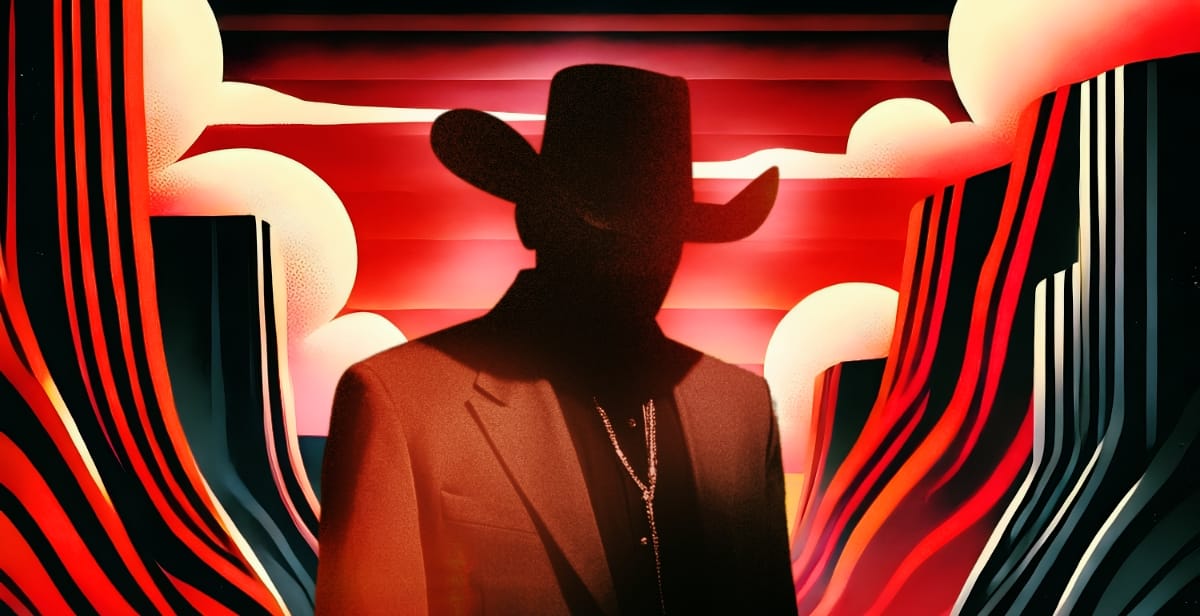
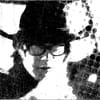
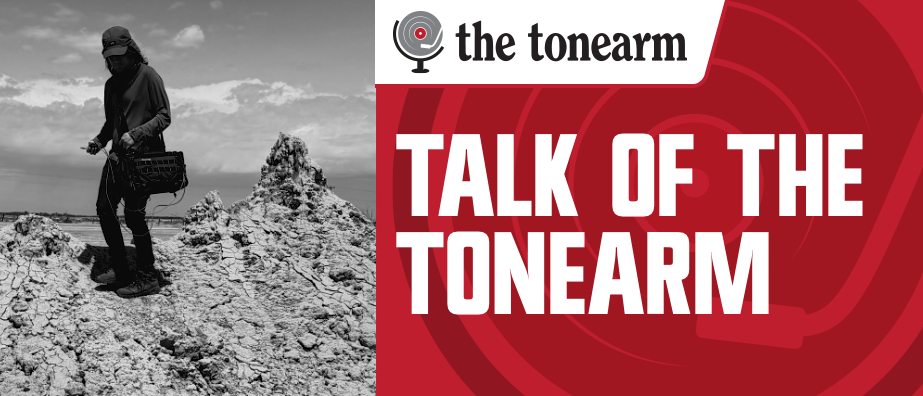
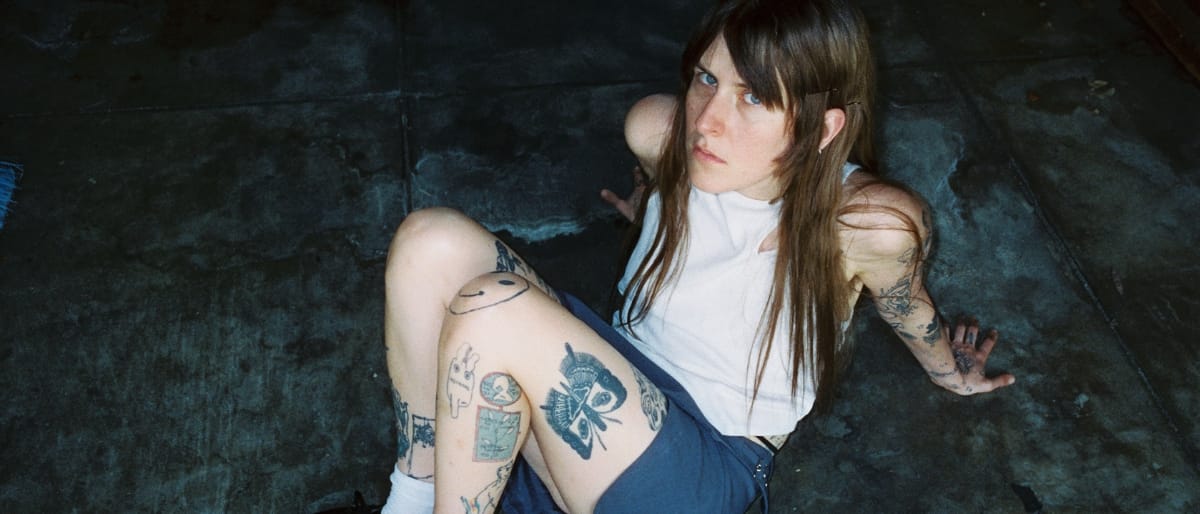
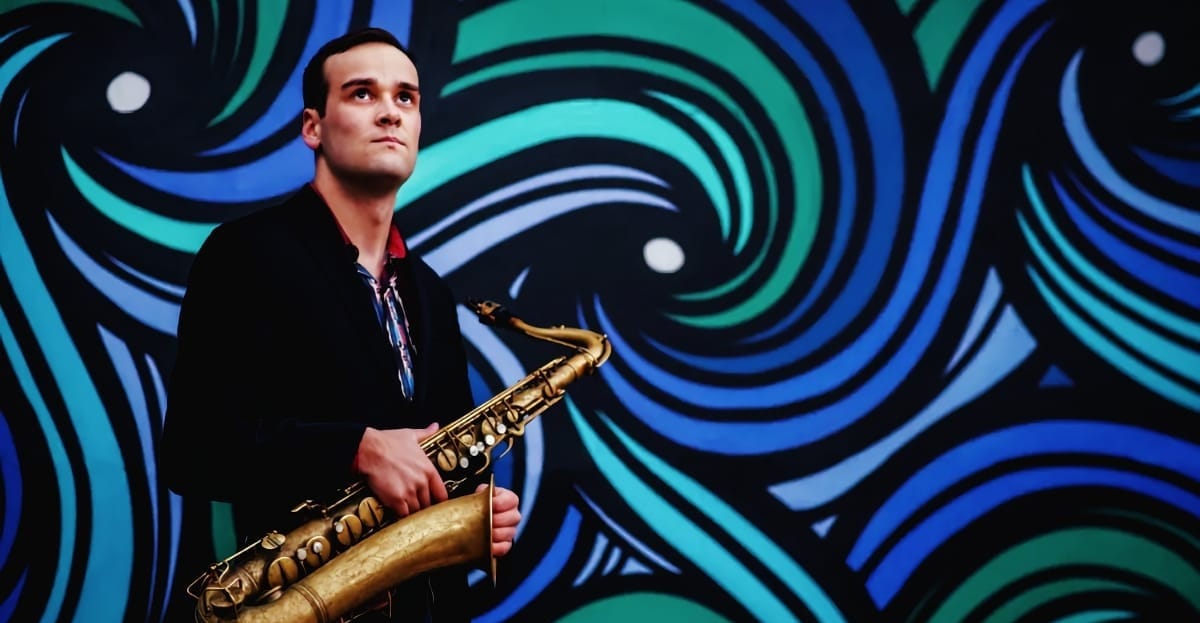
Comments